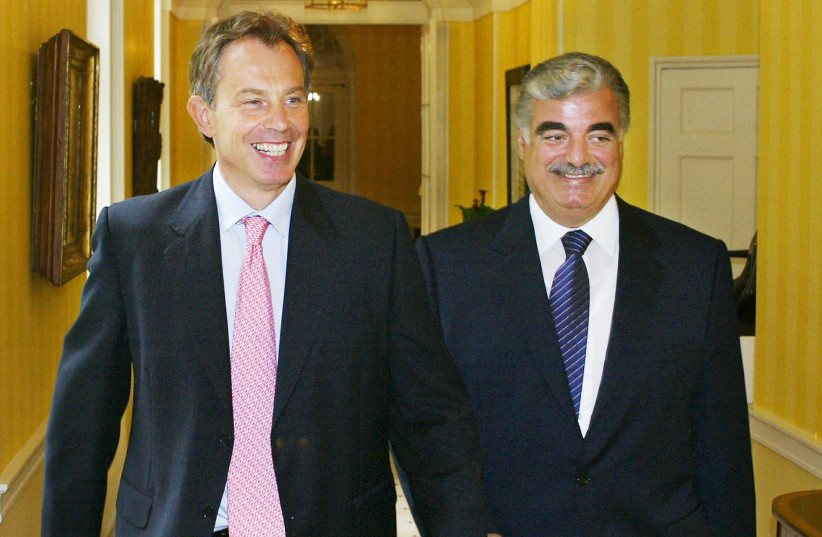Lebanese and Israeli officials attempted to reach a peace agreement during a series of meetings in London in the 1990's, according to the London-based Asharq Al-Awsat newspaper.
The newspaper published recently declassified records concerning meetings between then-Lebanese prime minister Rafic Hariri and then-British prime minister Tony Blair in 1997.
During one of the meetings, Hariri blamed Benjamin Netanyahu, who served as Israeli prime minister at the time, for the lack of progress in the regional peace process, due to a refusal to withdraw from the West Bank and Gaza and the continuation of settlement activity.
Hariri added that he had just met with King Hassan II of Morocco, saying the monarch was "very angry".
"When people like the [Moroccan] king, [then-Egyptian President Hosni] Mubarak, and Jordan's King Hussein, who have taken risks for peace, criticize Israel, you know that the Israelis must be doing something wrong," said Hariri, according to Awsat al-Asharq.

Hariri also referred to the Israeli forces who were in southern Lebanon, stating that the Israelis did not seem to want to withdraw their forces until Syria did the same, but that Syria wanted to see progress with the Palestinians first. The Lebanese prime minister lamented that the Israelis did not understand that all these issues are interconnected. "They have to decide whether they want to live in peace with their neighbors, or they want to try to dominate the region. If they try the latter option, there will be a problem."
The Lebanese prime minister asked Blair to get European nations and the US to pressure Israel into abiding by its agreements.
Hariri warns Arafat is 'losing on the ground'
Hariri additionally referred to the situation in the Palestinian territories, warning that then-Palestinian Authority president Yasser Arafat was "losing on the ground" and would not be able to keep the situation under control as Hamas and other fundamentalists were gaining influence.
The Lebanese prime minister stressed that Israel should halt its settlement activity and conduct serious negotiations and claimed that "Netanyahu is doing nothing, despite criticism from around the world."
Lebanese PM says he held 11 meetings with Israel in 1994
When asked when the last real negotiations took place between Israel and Lebanon, Hariri responded that 11 meetings had been conducted between the two countries in 1994.
During the meetings, the Israeli representatives set 10 conditions, including the dissolution of Hezbollah, according to Hariri. The Israelis also wanted to resume negotiations with the Syrians from square one.
In 1999, Hariri and Blair met again, although Hariri had since resigned from the Lebanese government and, in Israel, Ehud Barak had succeeded Netanyahu as prime minister. Hariri and Blair's meeting took place at the insistence of then-French president Jacques Chirac.
UK expected progress after Israel's withdrawal from southern Lebanon
A brief prepared by the UK's Foreign Ministry for the meeting noted that progress was expected in talks between Israel, Syria and Lebanon if Barak really pulled out of southern Lebanon.
The Foreign Ministry expressed concerns that progress was being made with Syria and Lebanon, without equal progress being made with the Palestinians. According to the brief, the Syrians and Lebanese were "alarmed" that Barak was considering pulling out of southern Lebanon without pulling out of the Golan Heights.
The brief pointed to two issues as central in Lebanon: Palestinian refugees that neither Lebanon nor Israel wants and the possibility of a vacuum being created by Israel's withdrawal from southern Lebanon.
